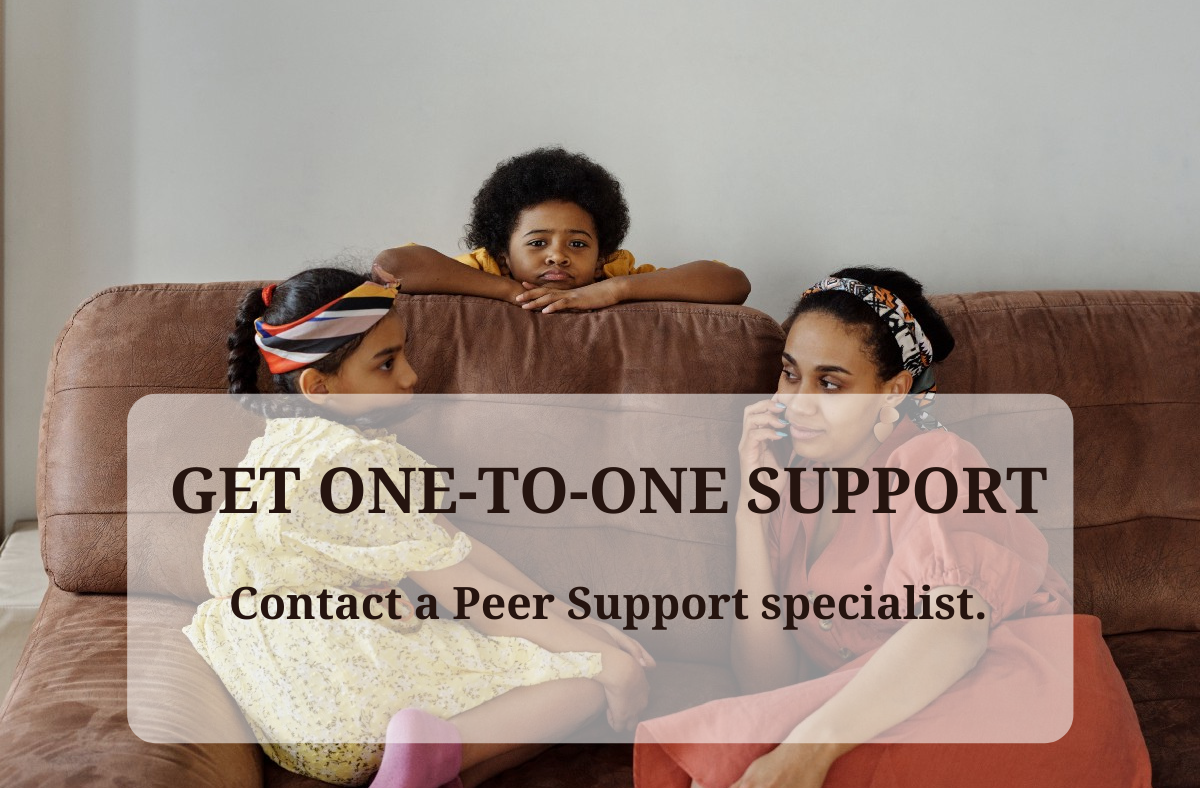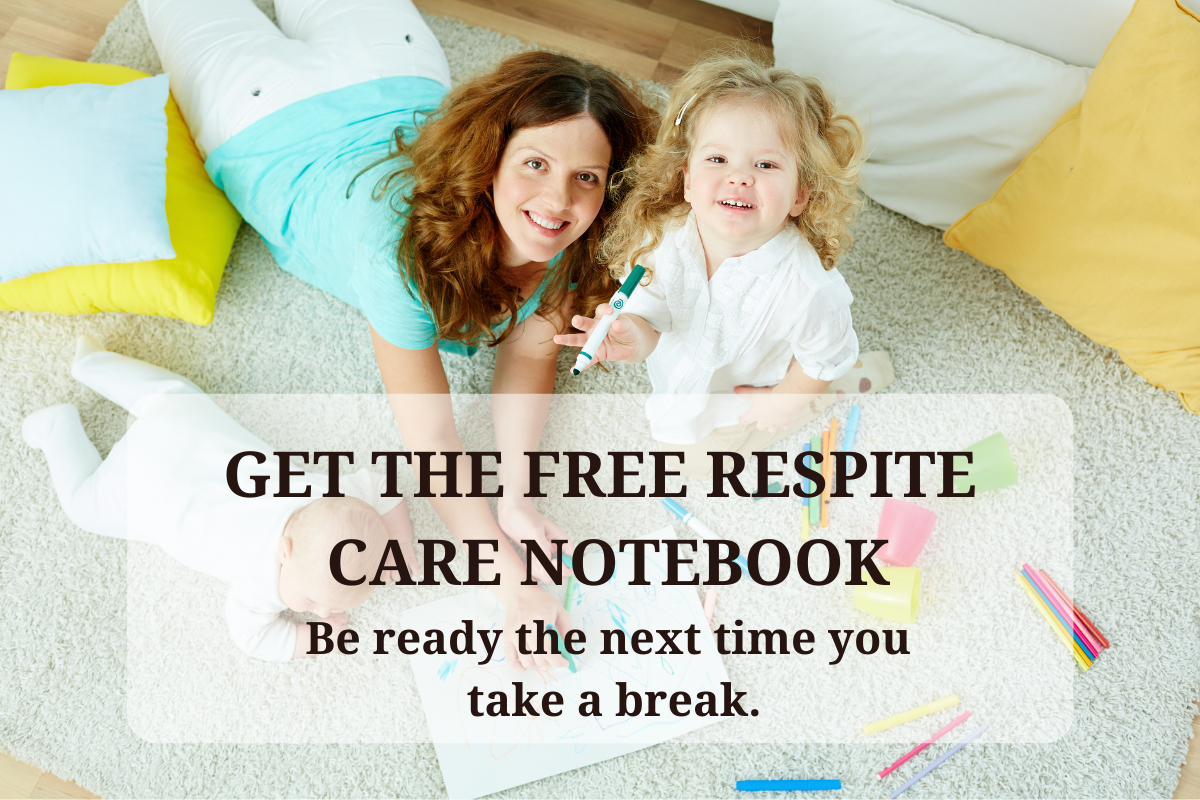
You are not alone.
Millions of people face mental health concerns every year; the latest data from the National Alliance on Mental Health shows that one in five U.S. adults experience mental illness and 17 % of youth ages 6-17 experience a mental health disorder.
For parents and caregivers of children living with a serious medical condition, those numbers are much higher.
For example, research has found that one in two parents whose babies had seizures experienced anxiety at hospital discharge. One in three of those parents experienced depression.
“Primary caregivers often don’t realize just how stretched and stressed they are until they get a real break and can look back.” – Caregiver of a child with a neurologic condition
In a recent survey the Child Neurology Foundation conducted, caregivers and families shared with us the fears that keep them up at night about their child’s health and future. There are also very real financial worries: the vast majority of the families who took our Needs Assessment survey reported they are spending somewhere between 10-25% of their income on their child’s medical expenses and treatments. Many reported relying on friends and family for support; but some do not have any support at home.
On other occasions, we’ve heard from experts and families about depression, anxiety and PTSD in our community.
“My experience with PTSD is of the variety people can get by witnessing medical trauma … it has included having pretty serious flashbacks occasionally, hypervigilance, and nightmares.” – Mother in our community
We know how difficult it can be for caregivers to find time for self-care – let alone time for one more medical appointment with a mental health care professional. But caregivers need care, too.
You are not alone on your journey; there are resources and supports available to help you.
Interviews, Tools & Resources
Need Support?
In A Crisis?
The National Alliance On Mental Illness (NAMI) HelpLine can be reached Monday through Friday, 10 a.m.–8 p.m., ET.
1-800-950-NAMI (6264)
or
Text “NAMI” to 741741
Read More
Check out these articles and stories for more information.
-
- An interview with the authors of When Your Child Has a Chronic Medical Illness
- Personal Stories – The National Alliance On Mental Illness
- Neonatal Seizure Registry Mental Health Resources For Parents
- Finding Your Community, Your Source of Support
- Finding Resilience Through Gratitude
- How To Tell If Your Child Has A Substance Abuse Issue | A Comprehensive Guide For Parents
Watch More
We have talked with dozens of experts and families about different mental health issues.
Watch these recorded, candid conversations here:
PTSD During a Pandemic for Parents with Medically Fragile Children
In this video, listen to a caregiver and a psychologist discuss the impact PTSD can have on families.
Hillary Savoie is founder and director of the Cute Syndrome Foundation and the mother of a child with multiple genetic mutations. Kate Junger is a clinical psychologist and associate professor of pediatrics at Cincinnati Children’s Hospital.
Depression, Anxiety and Epilepsy Surgery
We look at depression and anxiety reported by parents before and after resective epilepsy surgery – the most common epilepsy surgery.
Watch the conversation between Dr. Mary Lou Smith, a professor of psychology at the University of Toronto Mississauga, and Monika Jones who is the parent of a child who has had surgery and executive director of the Brain Recovery Project.
Understanding Depression During COVID-19
There is a lot of talk about an increase in depression due to the COVID-19 pandemic, especially for people who already have stressors – including caring for a child with a neurologic condition.
In this video, Catherine Ettman – the Chief of Staff and Director of Strategic Initiatives for the Dean’s Office at Boston University School of Public Health – shares advice about why is the pandemic increasing depression and how to manage it.
Palliative Care Decisions for Children with Epilepsy
Palliative care is a system of care that is designed to be an extra layer of support for families of children living with serious, complex medical conditions.
It’s a team-based model that addresses the physical, social and emotional aspects of caring for a child with serious medical issues and improves the well-being of the entire family.
Dr. Sarah Friebert is the Director of Pediatric Palliative Care at Akron Children’s Hospital. She spoke with Tiffani Goff who is the mother of three daughters and author of the book Loving Tiara.
Self-Care For Caregivers
CNF hosted a candid conversation about self-care between Eileen Devine, LCSW – Neurobehavioral Therapist & Support Coach for Parents and Yssa DeWoody, PhD – Parent and President at Ring14 International Onlus and Ring14USA.
This conversation took place at the height of the COVID-19 pandemic, but the take-aways are applicable in any circumstance.
Anxiety in Kids
In situations where children might be feeling heightened anxiety – like during the COVID-19 pandemic – how can you talk to them in a way that reduces that anxiety?
How can parents manage their own anxiety? Two licensed psychologists weigh in.
Albert Freedman, PhD is a licensed psychologist, has provided individual, couples and family psychotherapy, as well as consultation to schools and health care organizations, for over 20 years. He specializes in working with children, adolescents, adults, and families. He is also a parent to a child with SMA.
Nicole Dempster, PhD is a licensed pediatric psychologist at Nationwide Children’s Hospital and is an assistant professor in the Department of Pediatrics at The Ohio State University. Dr. Dempster specializes in helping children and their families cope with chronic illness.


